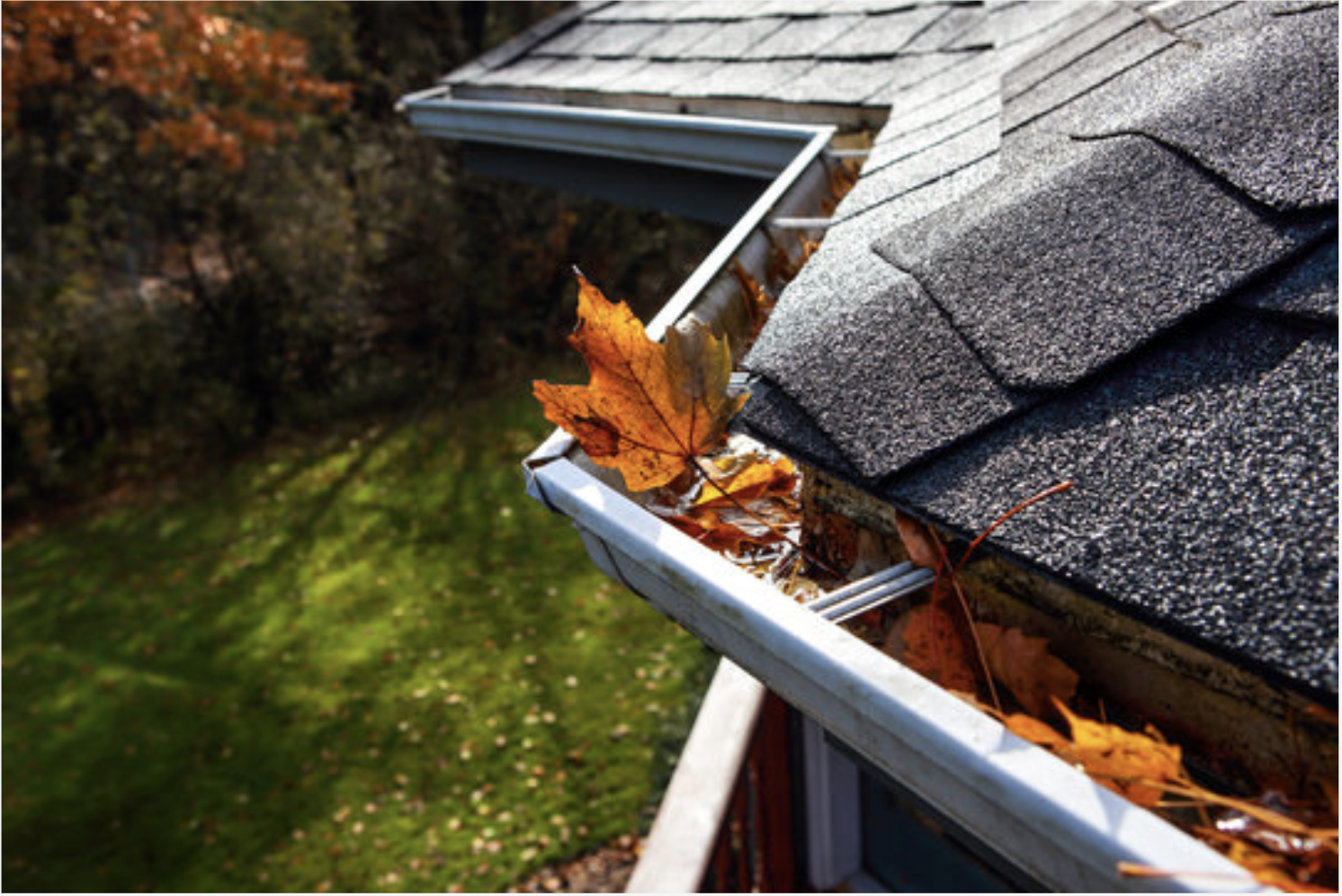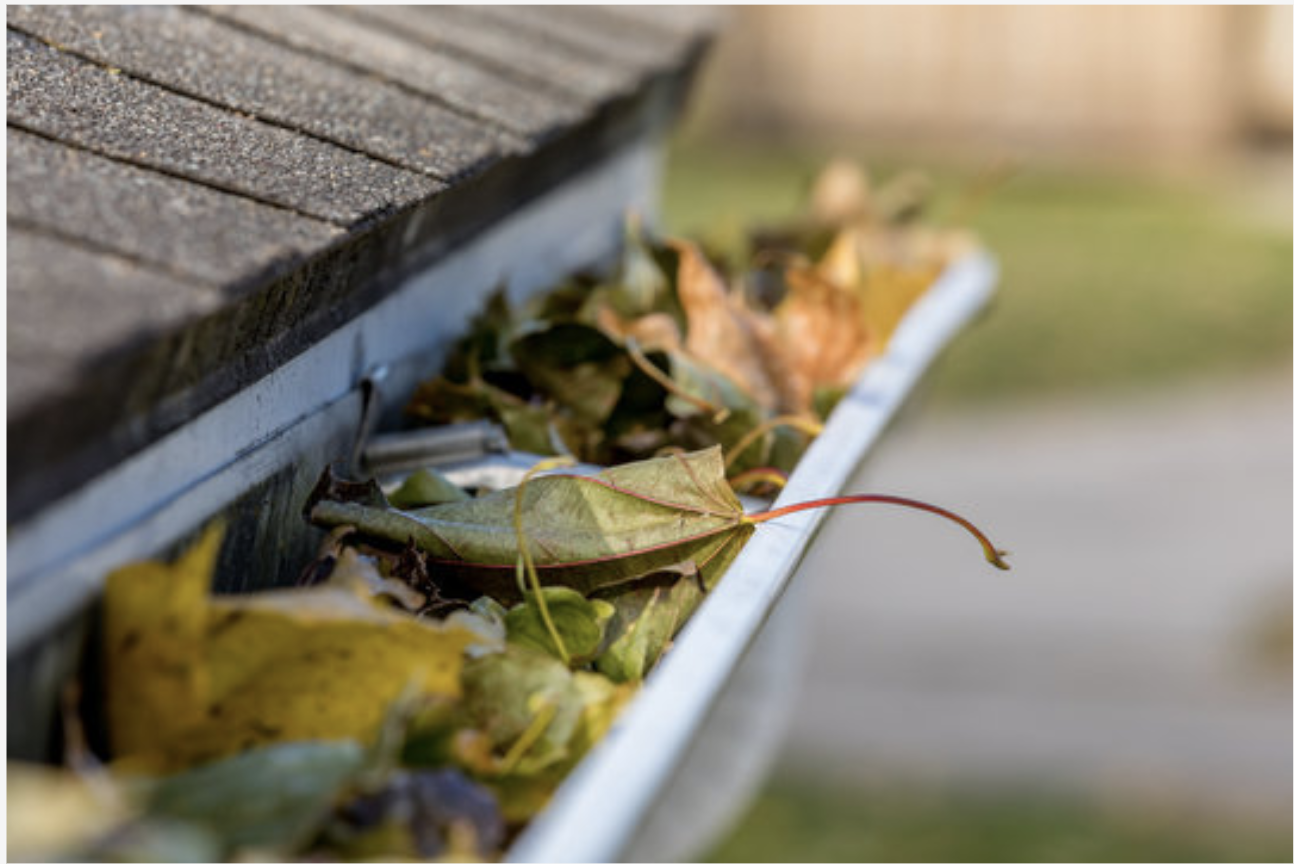As homeowners ourselves, we understand how much time and effort goes into maintaining a home. That being said, sometimes it’s the little things that end up meaning the most in the end. Continued maintenance, attentive care and a little bit of effort go a long way. A perfect example of this is your gutters. Maintaining gutters is a relatively painless process, but it's one that can make all the difference in the long run. 
How do I know if My Gutters are Clogged?
There are many signs your gutters may be clogged, and a few sure fire ones. The first thing to do is check for bugs or animals around your gutters. When debris clogs in the gutters, these visitors like to turn the debris into nests, so if you notice them hanging around your gutters, chances are they could be clogged. To that same end, if you notice plants beginning to grow, it’s another clear indication of a clogged gutter.
Other than the presence of living things, there are a few other visible signs that your gutters are clogged. The first is water overflowing over the sides of your gutters. This water can pool, and even seep into your home if left unchecked. Ultimately, those water damages can be costly.
If your gutters are sagging, it could indicate there is a large amount of debris in the gutters. Water mixed with debris like leaves, pine needles, or even excess roofing material can be heavy, which can cause the gutters to sag beneath the weight. Not only will this diminish the performance of your gutters, limiting the amount of water they can effectively carry from your home, but it could even cause your gutters to pull away from the house. Meanwhile, unaddressed standing water can cause siding to stain as well.
How do Gutters clog
The short answer is that gutters clog when debris enters them. However, there are other reasons that gutters clog; both drainage and slope have a big part to play in this. It's important to remember that gutters are effectively just drains, and even in a brief rainstorm, large amounts of water can pool and flow, slowing the stream to a crawl. Meanwhile, this slow stream can cause heavier debris to build up, which leads to clogging. It's important to check your gutters after storms, especially large ones, and clear any debris.
Another reason gutters clog is slope. The rule of thumb is an incline of ¼ to ½ inch for every 10 feet of gutter. The slope is designed to allow for water to move down and away from the home. However, this is not a very steep incline for the water to move down, meaning the flow of water may end up being relatively slow. While this isn’t a big deal if your gutters just carry water, the reality is that gutters are also tasked with carrying leaves, sticks, twigs, and other objects as well. A slow moving, heavy stream in a relatively flat drain incline, mixed with copious amounts of leaves and pine needles is a recipe for clogging. If that slope is too shallow, clogging is a sure-fire reality.

The Dangers of Clogged Gutters
Roof Damage
Gutters are your roof’s best friend. Able to funnel pooling water and other elements off your roof, properly functioning gutters can even help extend the lifespan of your roof, while also preventing costly damages. Clogged gutters mean excess water on the roof has nowhere to go, which may lead to rotting or leaking. These side effects can translate into costly damages for a homeowner.
Foundational Damage
Not only can a clogged gutter have an adverse impact on your roof, but it can also have an impact on other areas of your home as well. The point of gutters is to funnel excess water away from a home. If water won't drain, it will seep into the material its pooling on, which can include anything from the roof to the base of your home. This seepage can cause expansion or even compromised structural integrity. Water that cannot be adequately drained by your gutters may even seep and pool under driveways and sidewalks as well, which can cause cracking along the concrete or asphalt. The water may also run onto your lawn or garden beds, ruining landscaping endeavors and leaving you with a significant mess.
Fire Hazard
Accumulated debris lodged in your gutters can ultimately freeze or even burn in the wrong temperatures. Dry leaves and branches can become very flammable in hot, exposed air.
How To clean Gutters
The best way to make sure your gutters don't clog before you're on the hook for expensive repairs is to keep them clean.
- Start with a good sturdy ladder. Asking a friend, neighbor or family member to stand by and watch is best.
- Put down a tarp or towel to gather debris that falls
- Use a small scoop or shovel to remove debris
- Rinse the area down with a hose
That’s it you’re done. Be sure when rinsing to look out for leaks or pooling water, and get into the habit of cleaning your gutters every year.
Invest in Your Home
Here at Builders and Remodelers, our expert teams provide residential window installation, vinyl and fiber cement siding, roof installation, exterior door replacement, decking and other home improvement services. All of our crews are fully licensed, bonded and insured, and our experienced contractors are led by managers with over 40 years of experience. Our easy financing program makes it painless to get started, and our free in home consultations are unmatched. Reach out today to get started.








